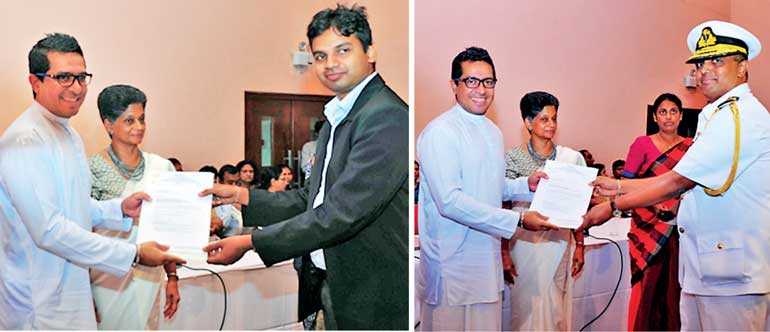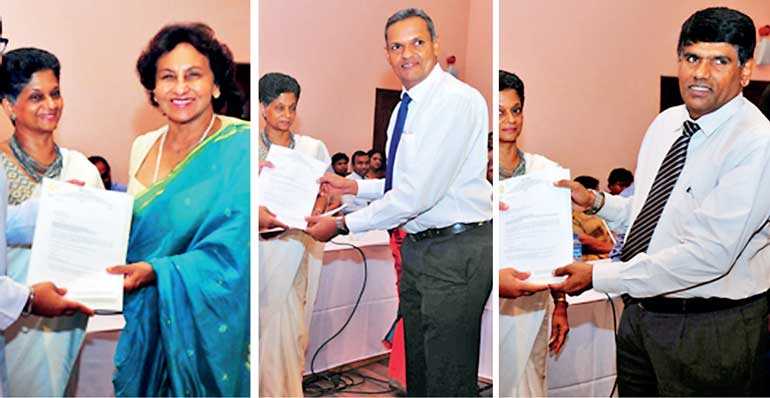Sunday Feb 15, 2026
Sunday Feb 15, 2026
Tuesday, 24 April 2018 00:00 - - {{hitsCtrl.values.hits}}



The Sri Lanka’s National Export Strategy (NES) has been finalised and is on the cusp of being submitted for Cabinet approval, following a series of consultations between industry leaders from the public and private sectors.
In order to facilitate the smooth implementation of the NES, the EDB has appointed Advisory Committees for a period of three years, to spearhead private-public collaboration that will identify priority issues and opportunities to improve the performance of export sectors. The Advisory Committees are expected to identify key market challenges & opportunities facing the industry, set goals to strengthen sector competitiveness, identify market requirements, as well as propose key policy changes that need to be initiated to develop the export sector.
These Advisory Committees were established by an Extraordinary Gazette notification in February, through powers vested by the EDB Act No.40 of 1979 by Development Strategies & International Trade Minister Malik Samarawickrama.
A total of 264 Members, who will sit in the Advisory Committees on Export Products and Service Sectors, received their appointment letters from State Minister for International Trade Sujeewa Senasinghe at a function held at the EDB on 5 April.
The Advisory Committees provide a key platform to inform advisors, policy makers, national institutions, and other relevant stakeholders on the programs and reforms required to boost specific industries, while at the same time maintaining the overall objective of facilitating growth of the export sector.
Advisory Committees consist of leading public and private sector industry representatives, industry leaders, and potential exporters. The diverse representations in the advisory committees ensure that it will be successful in the scrutiny of policy frameworks for exports, and for catalysing the expansion and growth of further exports. Representations from a wide spectrum of the export sector would also succeed in providing a coordinated framework for exports that would optimise institutional support and quality of service in the exports process. The export processes could be made more business-friendly by identifying and eliminating duplications in the procedures, and introducing reforms that make the process more expedient.
Additionally, the Advisory Committees will also analyse policies and programs pertaining to the exports sector, eliminating gaps and overlaps that curtail the natural growth of the sector.
These committees are legislatively mandated and will support the economic development through a high level trade governance council, which will be headed by the President or the Prime Minister to co-ordinate all trade-related interventions. The first round of Advisory Committee meetings organised by the EDB were held during the past two weeks in planning and discussing the efficient and effective implementation modalities of the industry-specific NES recommendations and priority interventions.
The establishment of Advisory Committees is a reflection of the success of the NES, even before the onset of its implementation. Furthermore, it highlights the very essence of the Government agenda and the Government’s commitment to making informed and justified interventions to transform exporting industries to deliver rapid growth and collective prosperity.
The NES focus sectors embrace a diverse range of industries with varying growth trends. These sectors were identified using rigorous export potential assessments, to ensure that these emerging export industries can utilise Sri Lanka’s competitive advantages to efficiently compete in global markets and especially with the objective of diversifying the product basket. The focus industries are IT-BPM, wellness tourism, spice concentrates, boating industry, processed food & beverages, and electronic & electrical components. Aimed at improving the business environment for all Sri Lankan industries, the NES will also focus on the development of trade support functions. These include logistics, trade information & promotion and national quality infrastructure. NES was devised with the technical expertise from the International Trade Centre (ITC), Geneva.